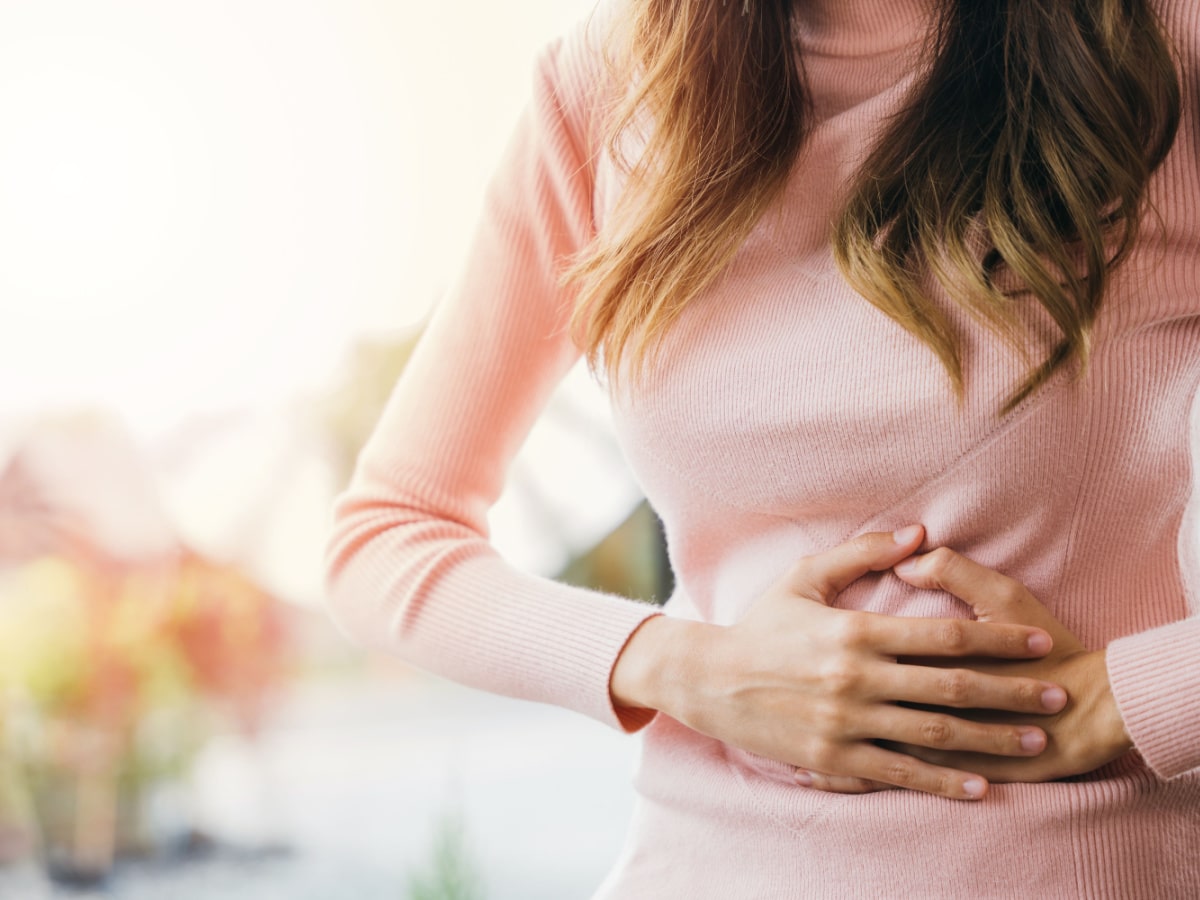
Key facts
- Gastritis is when your stomach lining becomes inflamed (irritated, swollen and red).
- There are several causes of gastritis, including infection, medicines and alcohol.
- Treatment will depend on the cause of your gastritis.
What is gastritis?
Gastritis is when your stomach lining becomes inflamed (irritated, swollen and red). Your stomach lining may also wear down because of the inflammation — this is called erosive gastritis.
Gastritis can:
- happen suddenly and be short-lived (acute gastritis)
- happen gradually and last for a few months or years (chronic gastritis)
What are the symptoms of gastritis?
Not everyone with gastritis will have symptoms. If you do have symptoms, they may include:
- a burning feeling in your upper stomach area (like heartburn) — which may change with eating
- nausea (feeling sick)
- vomiting (being sick)
- loss of appetite
- bloating and burping
What causes gastritis?
The most common causes of gastritis are:
- infection with a germ called Helicobacter pylori
- taking medicines called non-steroidal anti-inflammatory drugs (NSAIDs)
- drinking alcohol
A less common cause of gastritis is ‘autoimmune gastritis’. This is caused by a problem with your immune system. There are usually no symptoms with this type of gastritis.
Helicobacter pylori infection
Helicobacter pylori (H. pylori) is a type of bacteria (germ) that can cause gastritis.
About 3 in every 10 Australian adults over the age of 60 years have H. pylori. While most people infected with H. pylori don’t get ill, the bacterium can cause:
- gastritis
- indigestion
- peptic ulcers
- stomach cancer
Non-steroidal anti-inflammatory drugs
Ongoing use of pain relievers called non-steroidal anti-inflammatory drugs (NSAIDs) can cause gastritis.
NSAIDs include:
- aspirin
- ibuprofen
- diclofenac
- naproxen
Drinking alcohol
Drinking too much alcohol can cause gastritis and wear down the lining of your stomach.
When should I see my doctor?
You should see your doctor if you have symptoms that are:
- not getting better
- severe
- getting worse
Go to your nearest hospital emergency department or call triple zero (000) for an ambulance if you have:
- vomit that contains blood or a black, tarry substance (dried blood)
- blood in your stool (poo), or a black stool
How is gastritis diagnosed?
Your doctor will ask about your symptoms and examine you. They may also ask you to have some tests, such as:
- blood tests
- an H. pylori breath test
- stool (poo) tests
Your doctor may refer you to a gastroenterologist (doctor who specialises in the digestive tract).
Your specialist may suggest an endoscopy. An endoscopy involves putting a flexible tube with a tiny camera into your mouth and down into your stomach. This is usually done under sedation.
It lets your doctor look for signs of inflammation and other problems. Biopsies (small tissue samples) are usually taken to be looked at under a microscope.
How is gastritis treated?
Treatment for gastritis aims to:
- reduce the inflammation
- improve your symptoms
- treat the underlying cause of your gastritis
Treating H. pylori infection
If you have an H. pylori infection, your doctor will prescribe medicines to treat the infection. This will include antibiotics and acid-lowering medicine.
It’s important you take the full course of medicine as directed by your doctor.
Treating alcohol-related or NSAID-related gastritis
It’s important to stop taking NSAIDs and/or drinking alcohol if you have gastritis.
There are medicines that can reduce the amount of acid made in your stomach. These are called H2 blockers or proton pump inhibitors (PPIs). These medicines can help improve your symptoms.
Antacids may also help improve your symptoms. Antacids should be taken separately from some other medicines — ask your pharmacist about how to take these medicines.
You can also make some lifestyle changes to help improve your symptoms. You could try to:
- eat smaller meals
- eat more often
- avoid foods that irritate your stomach — such as spicy, acidic, fried or fatty foods
- stop smoking if you are a smoker
Can gastritis be prevented?
Avoiding or decreasing your use of alcohol and NSAIDs can help prevent gastritis.
There are steps you can take to help prevent infection with H. pylori. These include:
- washing your hands after using the bathroom and before eating
- eating food that has been properly washed and cooked
- only drinking water from a clean, safe source
H. pylori infection has become less common in Australia, especially in younger people.
Complications of gastritis
If left untreated, gastritis can lead to stomach ulcers and bleeding. While rare, some types of gastritis can also raise your risk of stomach cancer.



